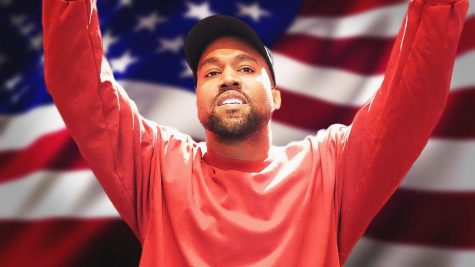The Proletariat Awakening

There has been an awakening, have you felt it? Millions of Americans have woken up from the American Dream in a cold sweat; realizing that it has evolved from a day-dream to a subtle stasis of submission, ending in something as extreme as a nightmare. In the age of the internet and in a time of polarization between fathers and sons, a counter-culture has begun to take form, much like in the 60’s during the Civil Rights and Vietnam era. This counter-culture consists of people who have been raised on the American dream, and have thus been taught that hard work will guarantee success.
The reason that they have turned their backs on this seemingly great opportunity is because it has been realized to largely be a myth. Case and point: wage gaps. In the year 1963, the congress passed a piece of legislation known as the Equal Pay Act (EPA). The EPA was designed to make sure that women received equal pay for equal work. At the time of the passage, women made an average of 58 cents for every dollar that their male counterparts made. 50 years later, according to data collected from the U.S. Current Population Survey and the National Committee on Pay Equity; as well as the Bureau of Labor Statistics: “Weekly and Hourly Earnings Data from the Current Population Survey” in 2013, women made an average of 78 cents on the dollar compared to men. The issue isn’t isolated to gender differences either: specifically African American women, who make 64 cents on the dollar compared to white men. Black men make about 75 cents compared to white men. Hispanic men make 67 cents on the dollar, and Hispanic women make a staggering 54 cents on the dollar – which is 4 cents lower than the gap between white men and women over 50 years ago.
So the question becomes: why? If all it takes to be successful in America is hard work, why do Hispanic women make about half as much as white men? Are they only half as motivated and hard working? Such a generalization would be both dangerous and dramatically incorrect. There are many explanations for this, one such being white male privilege.
Privilege is a simple concept. It is even widely accepted in popular culture as real, and can be seen in expressions such as, “It’s not what you know, it’s who you know.” If one has been lucky enough to be born into a rich family that can afford to give them a good education and provide for their physical and mental well-being – as opposed to someone who was born into a poor family with little access to quality education – then they are inherently on an easier path towards success, and it is not their fault or a result of their hard work.
Many would argue against a wage gap, claiming that such statistics are flawed due to demographic differences. For example, there are many businesses in which women make just as much or more than their male counterparts. Those who disagree with such a gap usually maintain the attitudes of the American dream, claiming that those who work truly hard will become successful, and nothing can prevent that in our capitalist and competitive society; however, as a whole, women make less in more industries, and these statistics are the result of averages which cover every business, and are therefore not biased facts.
One of many explanations for the wage gap, especially between races, is the inheritance of wealth. On the Forbes list of the 400 richest Americans nearly 1/3 attained all of their wealth or a portion of their wealth through inheritance, and only 0.25% were African Americans. This all comes back to privilege, unless of course, you believe that there is only one African American who is willing to work hard enough to become a billionaire. The inequality is so extreme, in fact, that according to data shared between the Forbes 400 and the Federal Reserve, the 100 richest people in America own more wealth than the entire African American population combined. Out of those, so few as 20 (17 men and 3 women) own more than the bottom half of African Americans.
The dramatic differences in wealth do not come exclusively from inheritance, however, and other explanations can be provided. One cause of wealth inequality is the ratio of pay between CEO’s, as well as other C suite positions, and their employees. The most dramatic difference can be found in the company “Discovery Communications”. According to data collected by Glassdoor, In this company, the CEO makes $156 million, as compared to their median worker who makes $80,000 per year. That is a ratio of 1,951 to 1.
Once again, advocates for recognizing the reality of the pay gap meet opposition on this claim. Their opponents state that because the CEO’s of these companies are running the business, they should inherently make more money than their workers. To some extent, this is true; however, when the CEO’s in question are able to make as much as they do by paying their employees less, a question of morality in relation to their venture-capitalist methods is formed.
Inequality is not exclusively at the fault of racial differences or employers, and even the government has a hand in effecting this inequality. A 2015 study found that U.S. companies store an approximate $2.1 trillion oversees that is entirely tax exempt. The report found that $620 billion would be taxable if the money was kept on the mainland. Instead, the U.S. has continued a policy of trickle-down economics, assuming that while the rich accumulate more wealth, they will invest it in more and higher paying jobs. As a result, the burden for those taxes is shifted onto the already poor, further exacerbating the inequality between the poor and the super-rich.
In the case of offshore tax havens, such as Switzerland, the U.S. government is not guilty of allowing for the companies to shelter money that is tax exempt; however, this is not always the case. The U.S. protectorate of Puerto Rico has been given triple tax exemption, meaning that it cannot be taxed on the local, state, or federal level for any money generated from their businesses. Due to this, millions of dollars have been funneled into Puerto Rican businesses founded from U.S. which makes up a large amount of Puerto Rican wealth. Recently, however, business has declined in Puerto Rico, and as a result they have gone into an insurmountable debt which they are not able to pay off. Once again, due to the U.S. legislative powers that be, Puerto Rico cannot declare chapter 9 bankruptcy in the same way that states can, therefore deepening their debt crisis. This has major implication for not only Puerto Rico, but for the U.S. as well, harming the wellbeing of the citizens of these locations.
While the U.S. continues to allow the rich to get richer and fails to provide a social safety net for the poor, our inequality has begun to affect not just our own nation, but the people of the world. The American dream which we treasure so much has thus become a nightmare for millions of Americans, and while it remains a dream for the super-rich, it has been at the expense of the poor. While ideally the hardworking will prosper in this nation, the fact remains that this is not true, and that females, racial minorities, and employees of large corporations, as well as others outside of the 50 states, have to work even harder. The odds are stacked against many Americans, and they have been disenfranchised from their ability to succeed. The morality of the American Dream must therefore come under close scrutiny.
That is the primary issue at hand. Whether or not these practices and inequality are viewed as acceptable or robbery is all a matter of perspective and opinion. The super-rich who own massive media outlets will continue to preach a gospel of prosperity to the poor, and many will simply continue to develop their hopes for success. The fact is that it would take a massive opposition from “We The People” and a revolution in order to begin to redistribute the wealth and try and re-establish a fair and moral economy. Such a revolution seems to be possible, in fact, according to the Pew Research Center a majority of Americans believe that their economic system is rigged to favor the wealthy, but at the same time, 60% believe that they can become rich if they work hard.
It’s like Marco Rubio once said, “We have never been a nation of haves and have-nots. We are a nation of haves and soon-to-haves, of people who have made it and people who will make it.” Many Americans believe in this classic rags-to-riches story; however, this may be because many believe that it happens much more often than it actually does. Perhaps such an awakening may happen on a larger scale, then again, perhaps not. Only time will tell, and who knows, maybe the workers of the world really will unite with nothing to lose but their chains. The new counter-culture of unhappy individuals may fade out, or maybe it will sustain itself. It will inevitably become a fragile issue as the gap between the rich and the poor widens, and how that issue will be handled is up to the American people.










